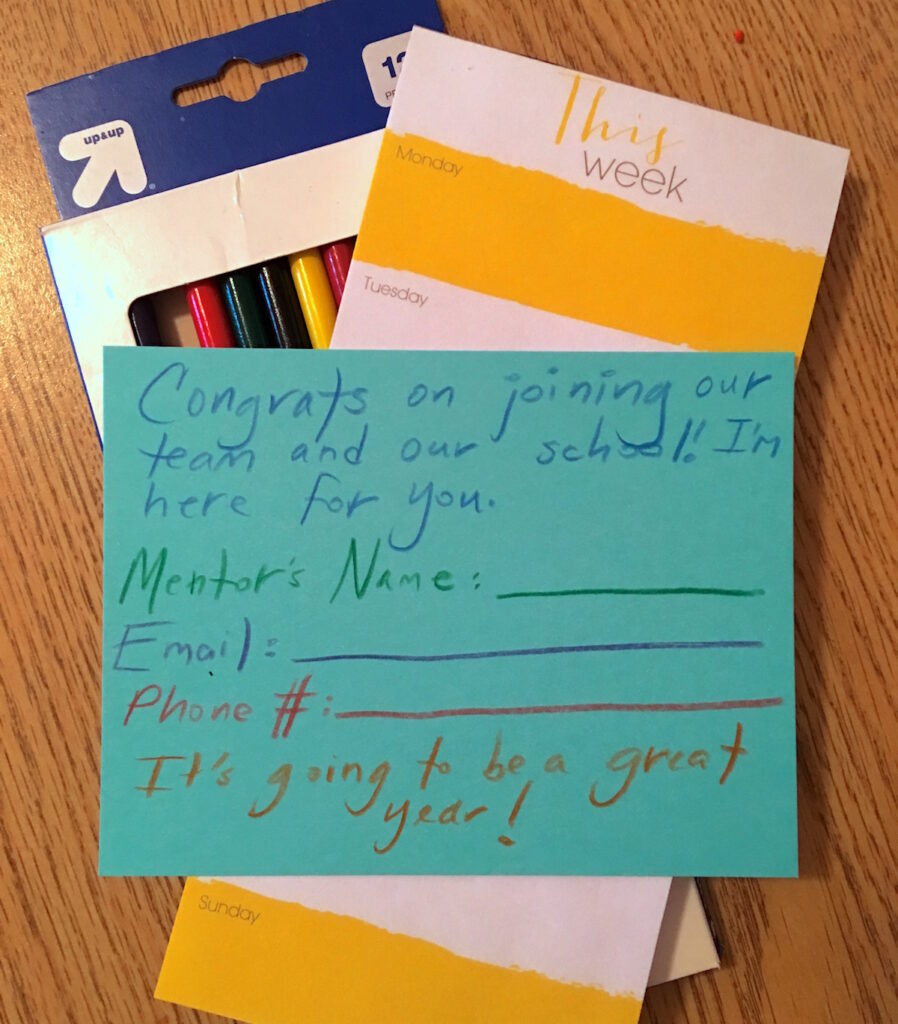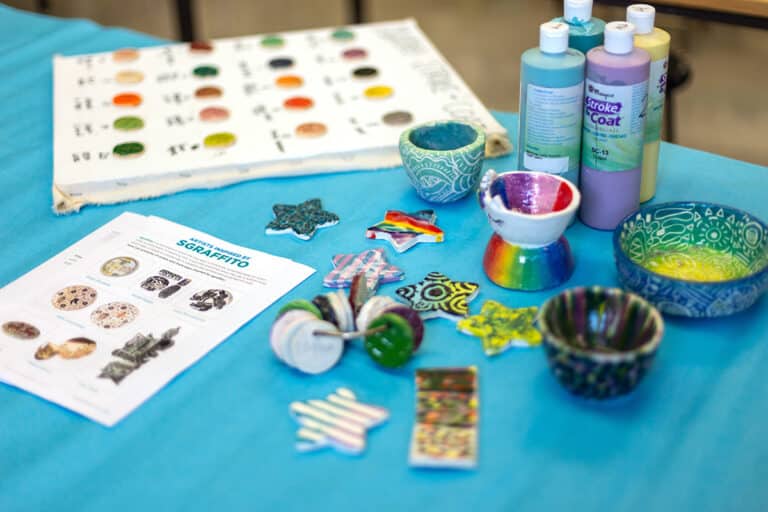Mentoring new teachers is an honor not without its considerations. As a mentor, you must take care not to indoctrinate new teachers, but instead, help them define the kind of teacher they want to be. Then, help them take steps toward achieving their own goals.
Here are 7 important considerations when mentoring new teachers.

1. Your educational philosophy isn’t the only one.
Take time to talk with your colleague about their views on education, in particular, their philosophy. Get a big picture view of how they expect to impact student learning in their classroom.
2. Be careful to suggest, not demand.
For example, the organizational system that works phenomenally for you, might not work for them. Make sure to phrase things with care. You might say something like, “I not sure what works well for you, but I have a file drawer dedicated to IEPs and 504 plans where I keep student’s files by class. It helps me stay organized. I encourage you to find a system that will help you streamline the process, too.”
3. Suggest they “sit in” and observe a few master teachers in your district.
It’s important to remember just because you are their mentor you cannot – and should not – be expected to provide them with everything they need to know. Regardless of disciplines, they can glean classroom management strategies and other helpful information from other master teachers, too.
4. If you get one, consider giving back the stipend.
We were all first-year teachers at some point and remember the financial struggle. Consider gifting your mentorship stipend to your mentee as a sign of support and understanding.
5. Think about sharing personal contact information.
I find in order to successfully mentor new teachers, they have to be able to reach me outside of the school day and school building. This means sharing a personal phone number and/or email. If you are not willing to do this, maybe mentoring isn’t for you. New teachers have crisis moments and will need to talk once in a while. You can simply let them know the contact information is for near emergencies and it is not to be shared.

6. Be careful to share facts, not opinions.
Show them how to request a workshop, how to order supplies, where to keep their lunch, and where to get extra paper towels in the custodial closet. Do not share feelings about other staff members or administration, feelings about parents or students, opinions on board policy and/or anything else that might be biased.
7. Ask yourself, “Do I have time for this?“
We all have busy schedules, and mentoring is a significant commitment. If you are struggling to find time to get your own lessons together, you may not be ready to mentor. Mentoring should come at a time when you feel established, confident, and fairly well-organized. There is paperwork related to mentoring in most states and you will need time to complete it as well as work with your novice teacher.
Mentoring isn’t for everyone, but if it’s done well, it establishes a wonderful partnership that behooves both parties. Veteran teachers often gain new ideas, exposure and familiarity with more modern resources, and even renewed enthusiasm for what they do. Novice teachers gain guidance, structure, wisdom, and practical applications.
Personally, I feel mentoring is a fantastic way to keep yourself fresh and forge bonds with new, incoming staff.
Have you mentored a new teacher? How was your experience?
What were some of the unexpected challenges and/or rewards?
Magazine articles and podcasts are opinions of professional education contributors and do not necessarily represent the position of the Art of Education University (AOEU) or its academic offerings. Contributors use terms in the way they are most often talked about in the scope of their educational experiences.





